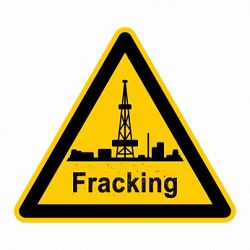

Despite fracking failing to get started at a gas well in the North of England, company's lorries, police vehicles and protesters' wood fires have combined to drive up air pollution levels near the area.
Operations at the Kirby Misperton well in North Yorkshire have been delayed after the operator Third Energy ran into financial problems. Nevertheless the project's local pollution impact has been revealed by Government supported research.
A professor of atmospheric chemistry at the University of York, Alastair Lewis, said his air quality monitoring project found a group of pollutants had increased in the vicinity of the site to levels normally seen in a city rather than a rural area.
Lewis discovered the main causes were:
As a result Lewis commented that the above causes "shifted a semi-rural location into a chemical environment that looked more similar to a city suburban environment for NOx".
However he did add that the levels did not breach regulatory limits, and the full research will be published in due course.
Steve Mason, who lives near the well and a campaigner for Frack Free United, said he was extremely concerned that air quality had been impacted.
"If the air quality of rural Yorkshire can be turned into that of a city environment by preparatory work for a single well that was never even fracked, imagine the impact if there are thousands of fracking wells strewn across our countryside, which is what the industry is planning to do".
If the shale gas industry scales up to a national level with 400 wells, NOx levels would increase by up to 4%, according to an earlier Government report.